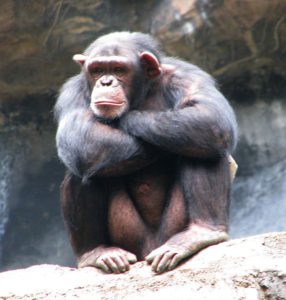Guest Post: No, We Don’t Owe It To The Animals to Eat Them
Written by Adrian Kreutz, New College, University of Oxford
That eating animals constitutes a harm has by now largely leaked into public opinion. Only rarely do meat eaters deny that. Those who deny it usually do so on the grounds of an assumed variance in consciousness or ability to suffer between human and non-human animals. Hardly anyone, however, has the audacity to argue that killing animals actually does them good, and that therefore we must continue eating meat and consuming animal products. Hardly anyone apart from UCL philosopher Nick Zangwill, that is, who in a recent article published in Aeon argues that “eating animals’ benefits animals for they exist only because human beings eat them”. One’s modus ponens is another’s modus tollens, right? Let me unpack and debunk his argument.Read More »Guest Post: No, We Don’t Owe It To The Animals to Eat Them

